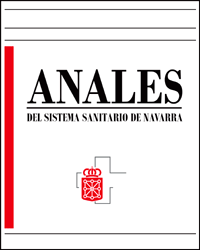Problems in the use of medicines in enterostomized patients
Keywords:
Colostomizado. Ileostomizado. Absorción de fármacos. Efectos adversos de fármacos.Abstract
The practice of intestinal stoma, transitory or permanent, has a series of implications of a physiological, pharmacological, psychological and communitarian character that must be attended to in an integral and individualised way for each patient. Frequently, the ostomised patient is subjected to pharmacological therapy. However, the foreseeable effect of the medicines administered can be affected by factors related to the stoma. Thus, descriptions have been made of extensive resections of ileum that affect the process of the oral absorption of medicines, especially in pharmaceutical forms of enteric covering, delayed release and pills. This would mean access of the unabsorbed portion of the active principle to the collecting device through the faeces and a possible alteration of the duration and intensity of the pharmacological effect. On the other hand, pharmaco surveillance studies have revealed that numerous active principles produce changes in intestinal motility, either on the basis of its fundamental mechanism of action (laxatives, anti-diarrhoea, prokinetics), or as a collateral or secondary effect (antiacids , antidepressants, antihistamines, opioid analgesics). The appearance of constipation and, especially, of diarrhoea can be disturbing and worrying for ostomised patients, and particularly grave in ileostomised patients, due to the dehydration to which it can give rise. Similarly, changes in the colour and odour of faeces, secondary to the administration of medicines (ferrous salts, aluminium hydroxide, bismuth compounds) can needlessly alarm the patients who detect them in the ostomy collecting device (pouch). All these factors can create difficulties for the adhesion of the patient to the proscribed treatment and, as a result, affect its success. However, they can be avoided, corrected or justified with good counselling by the health professionals involved in caring for enterostomized patient.Downloads
Downloads
Published
How to Cite
Issue
Section
License
La revista Anales del Sistema Sanitario de Navarra es publicada por el Departamento de Salud del Gobierno de Navarra (España), quien conserva los derechos patrimoniales (copyright ) sobre el artículo publicado y favorece y permite la difusión del mismo bajo licencia Creative Commons Reconocimiento-CompartirIgual 4.0 Internacional (CC BY-SA 4.0). Esta licencia permite copiar, usar, difundir, transmitir y exponer públicamente el artículo, siempre que siempre que se cite la autoría y la publicación inicial en Anales del Sistema Sanitario de Navarra, y se distinga la existencia de esta licencia de uso.








